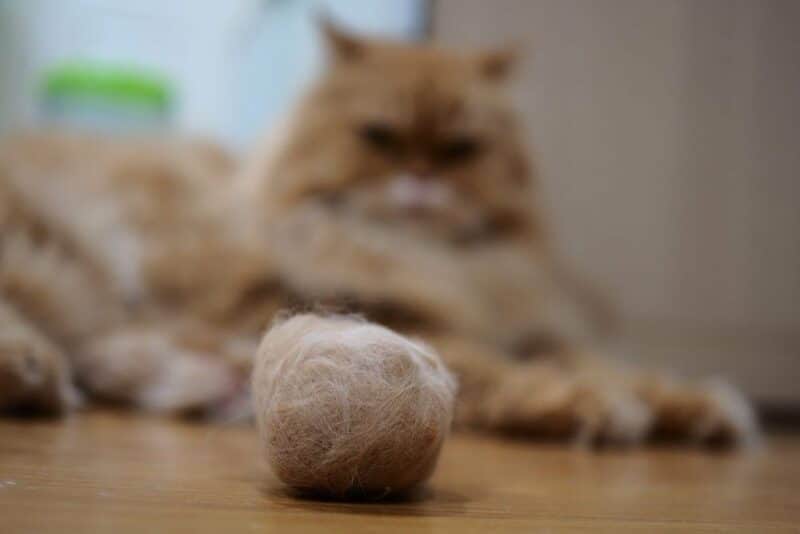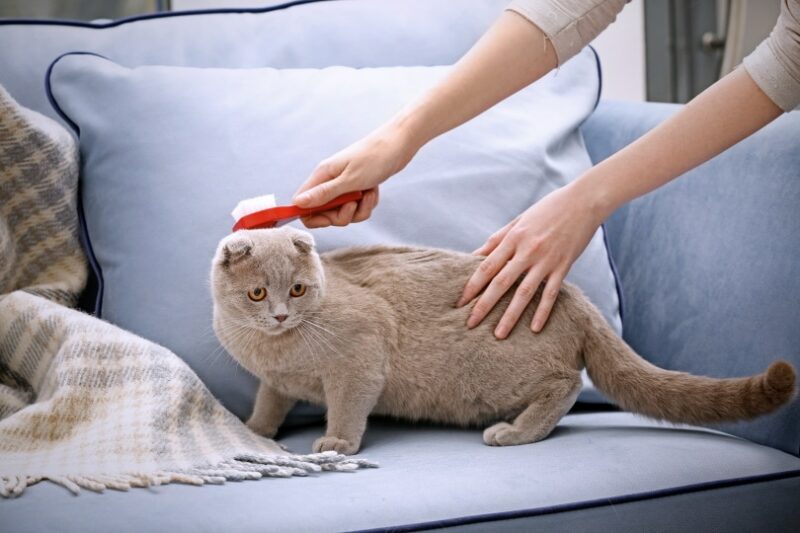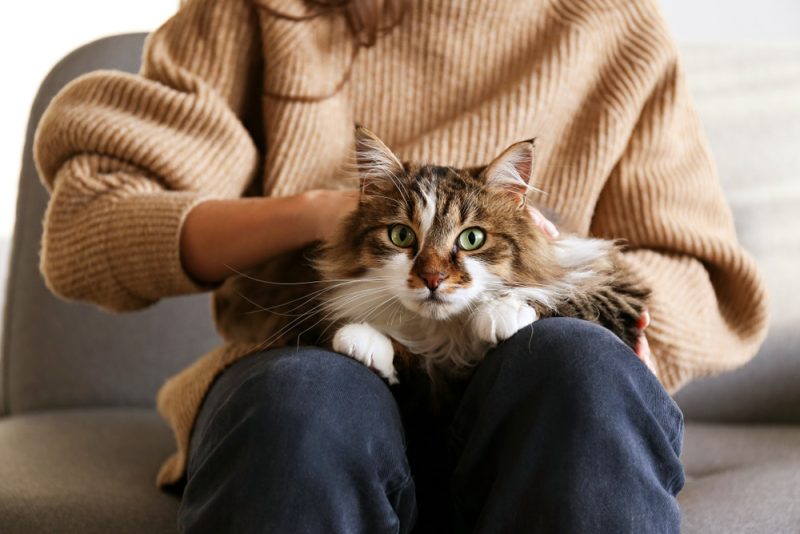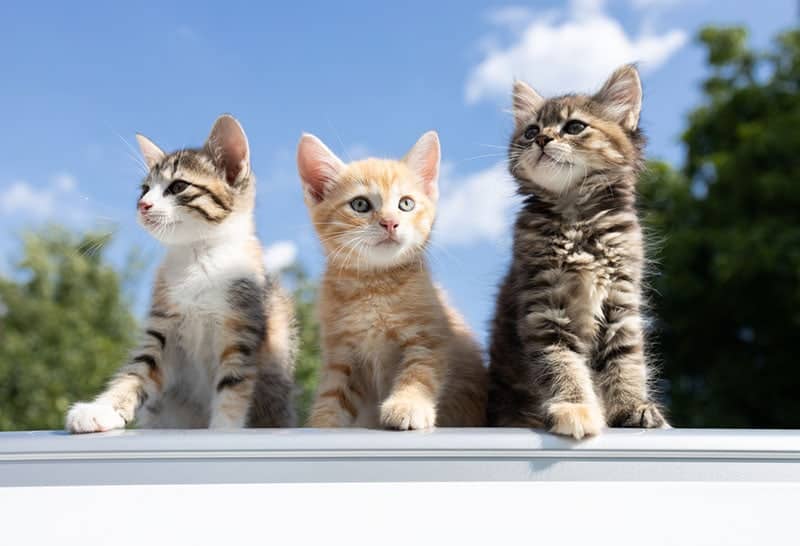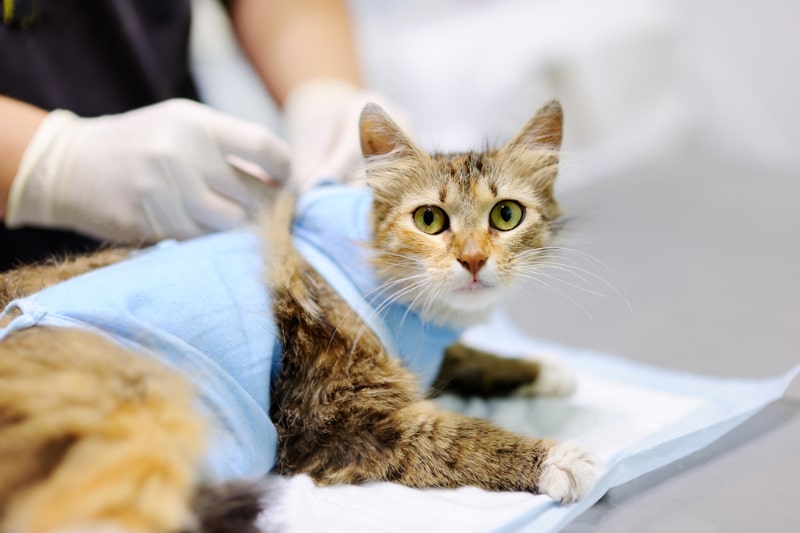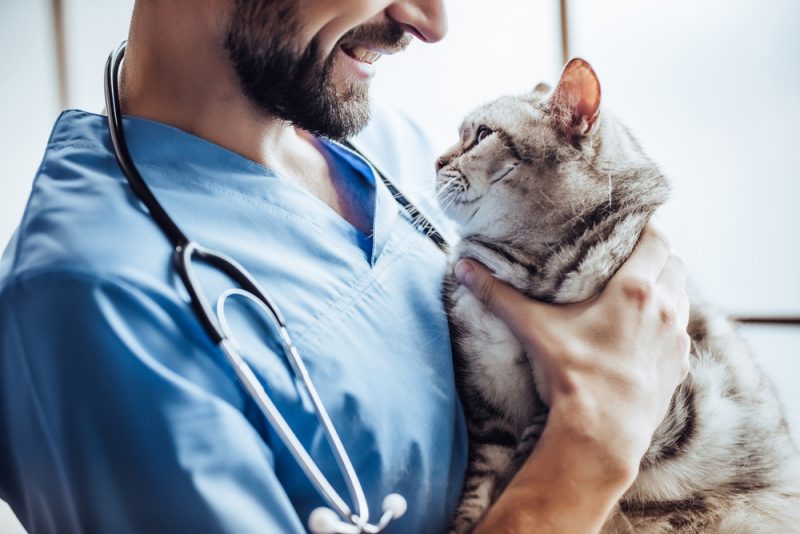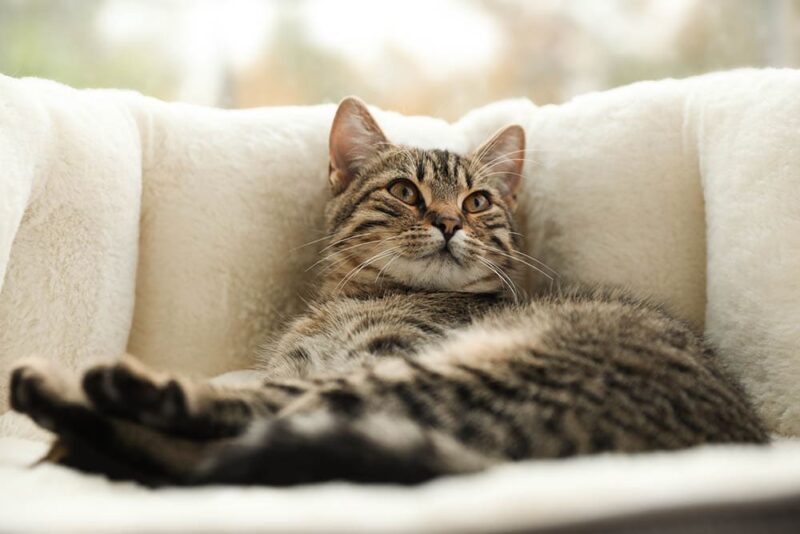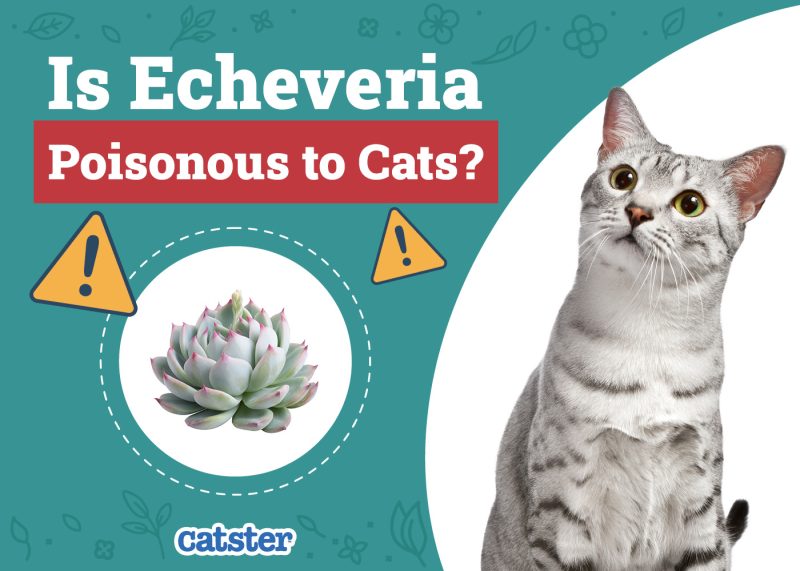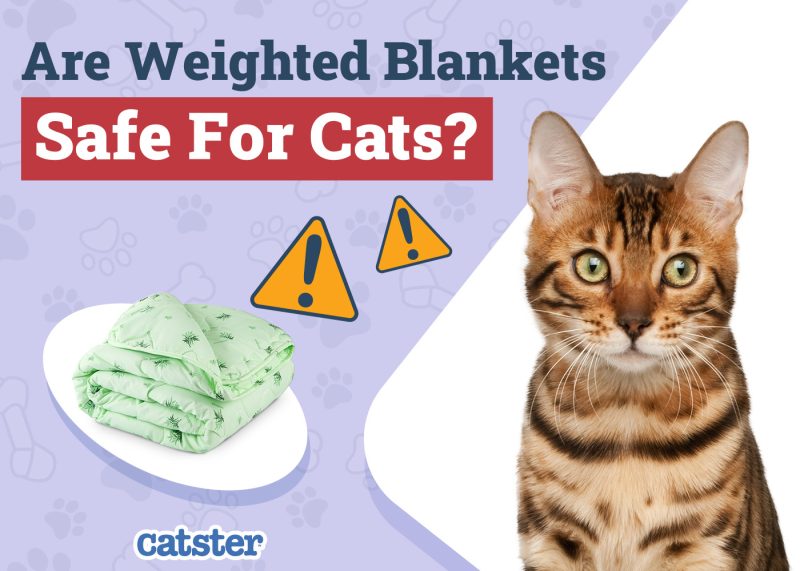In this article
Have you ever been woken out of a deep sleep by the sound of your cat dry heaving on the bedroom floor? More importantly, have you ever fallen right back to sleep without dealing with the results and stepped out of bed directly onto the slimy hairball your cat threw up in the night? All cats (yes, even hairless ones, but we’ll explain later!) can potentially get hairballs, but several factors play a role in how likely they are to develop.
In this article, we’ll explain how hairballs develop and cover some of the risk factors involved. We’ll also tell you when to worry about your cat’s hairballs, how to reduce the chances of them getting one, and how exactly a hairless cat could still get a hairball.

How Hairballs Develop
As you probably noticed, your cat spends a lot of time grooming. When the cat licks their fur, they remove dead hair. The rough bumps on your cat’s tongue are pointed towards the back of their mouth and push the hair in that direction, causing them to swallow it.
Most of the time, the extra hair typically moves through your kitty’s digestive system and right out into the litter box with the other undigested waste. However, sometimes, hair remains in the cat’s stomach, building up into a “ball” that your cat eventually throws up.
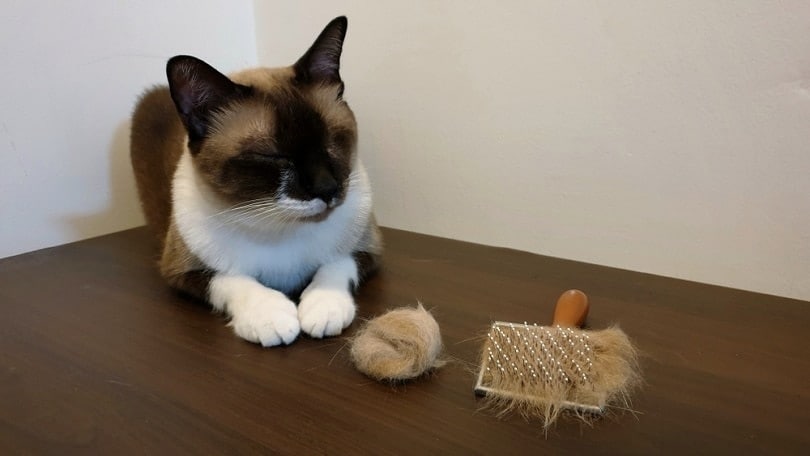
What Makes Cats More Likely to Develop Hairballs?
The more time a cat spends grooming, the more likely it will develop hairballs. Long-haired cats are often more prone to hairballs. This isn’t necessarily because they shed more but because their long hair seems to form hairballs more easily. Finally, cats are more likely to develop hairballs during shedding season, when more loose hair is available for swallowing.

When to Worry About Hairballs
The occasional vomited hairball, once every week or two, is pretty common and generally not a cause for concern so long as the cat is otherwise healthy.
However, you should contact your veterinarian if your cat stops eating, is lethargic, or makes vomiting sounds without producing a hairball. A hairball can rarely make its way into the cat’s intestines and become stuck or become so large in the stomach that it needs surgical removal. Without medical intervention, a life-threatening blockage could occur.
If your cat is vomiting frequent hairballs or shows other signs of digestive troubles like poor appetite, diarrhea, or losing weight, you should also contact your veterinarian. Your cat could have an underlying condition impacting its digestion or intestinal function.
Finally, it’s sometimes hard to tell if your cat is coughing, wheezing, or trying to throw up. If you’re uncertain, see your vet. Coughing and wheezing can be signs of heart or breathing problems that need prompt treatment.
Reducing the Risk of Hairballs
While you may not be able to prevent every hairball, here are a few steps you can take to reduce the chances that your cat develops them:
- Brush your cat frequently, especially during the shedding season
- Feed a hairball control diet, like this one
- Use a hairball control product, like this one
- Keep floors clean of other pet hair, human hair, thread, or other items that can be swallowed and contribute to hairball development
Contact your veterinarian if your cat seems to be over-grooming, causing bald patches or sores. This behavior can have many medical and behavioral triggers and often requires medication to correct.
If you need to speak with a vet but can't get to one, head over to PangoVet. It's an online service where you can talk to a vet online and get the advice you need for your pet — all at an affordable price!
How Hairless Cats Get Hairballs
And finally, the moment you’ve all been waiting for: how hairless cats can still get hairballs.
Generally, the kitties have little hair, and grooming themselves isn’t the issue. However, hairless cats can get hairballs if they groom other (furry) cats or even dogs in the household. They may also develop them if they eat human hair, either by grooming their owners or consuming it off the floor.
Is it less likely that a hairless cat will develop hairballs? Yes, simply because they aren’t usually at risk from grooming themselves. However, owners of the cats still need to exercise some caution, especially if there are other pets at home.

Conclusion
Hairballs, like litter box scooping, are one of the annoyances that most cat owners learn to accept as a trade-off for the love and affection of their kitties. But that doesn’t mean they are fun to step in or clean up! Fortunately, there are steps you can take to minimize and prevent excessive hairballs. Remember, if you’re concerned about your cat’s hairballs or other signs of illness, don’t hesitate to call your vet. Cats can become dangerously ill if they don’t eat for even a few days, so don’t delay getting them the care they need.
Featured Image Credit: Montakan Wannasri, Shutterstock
